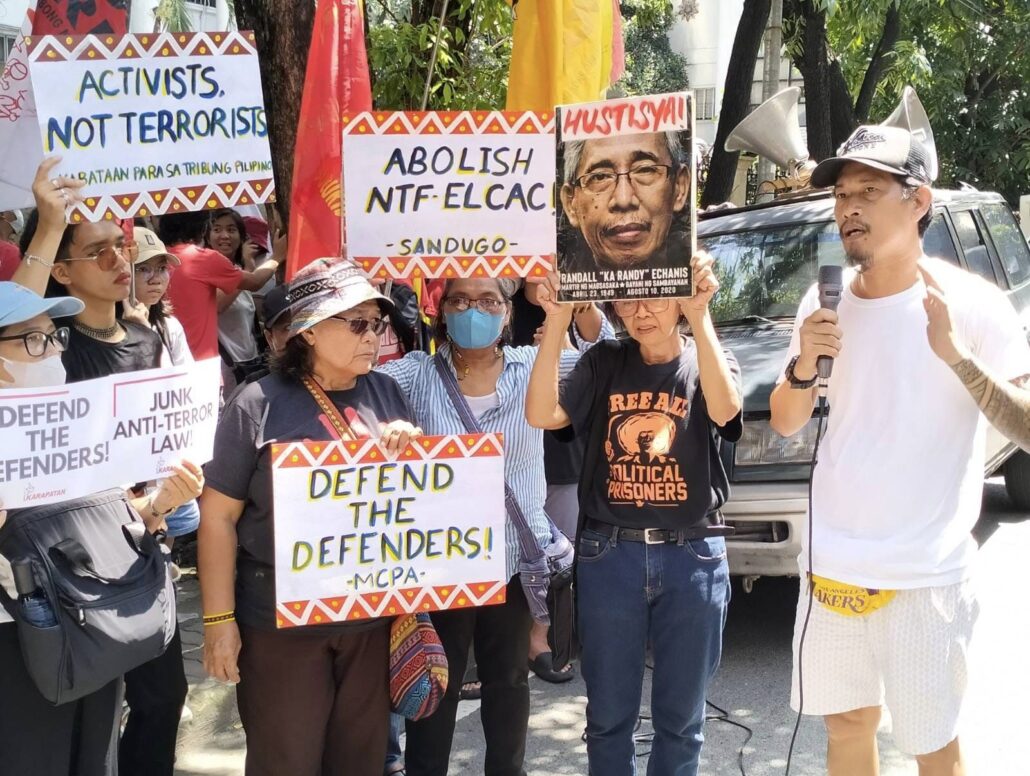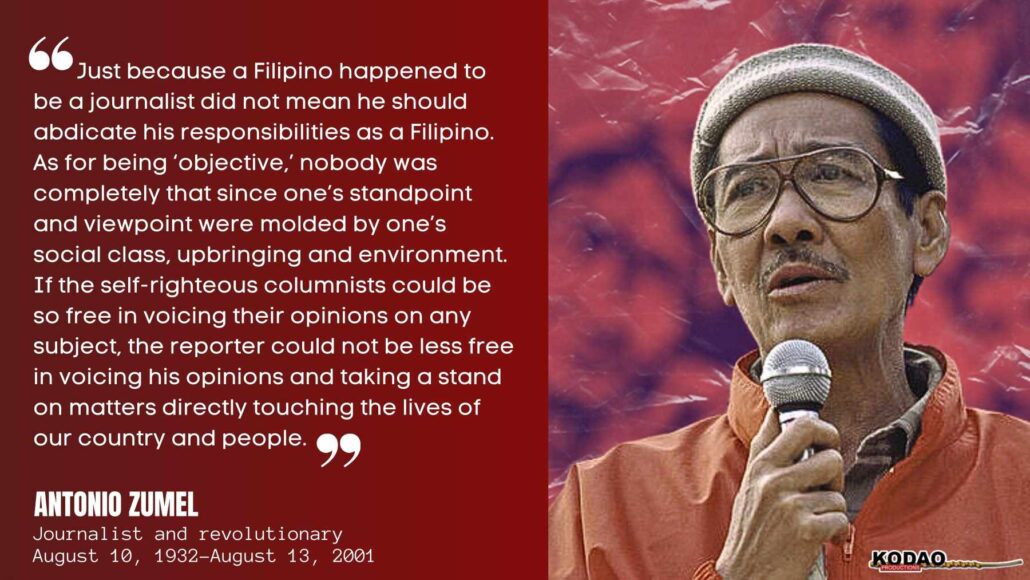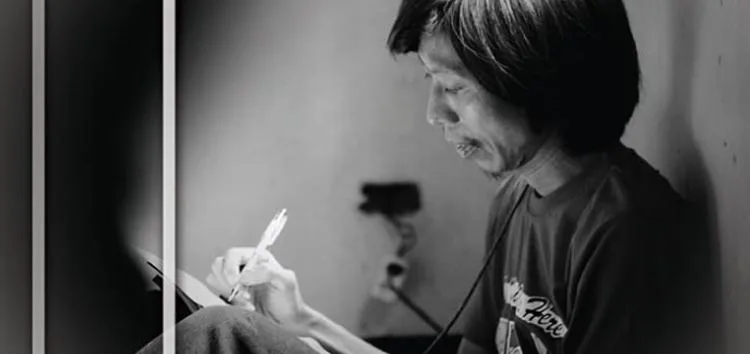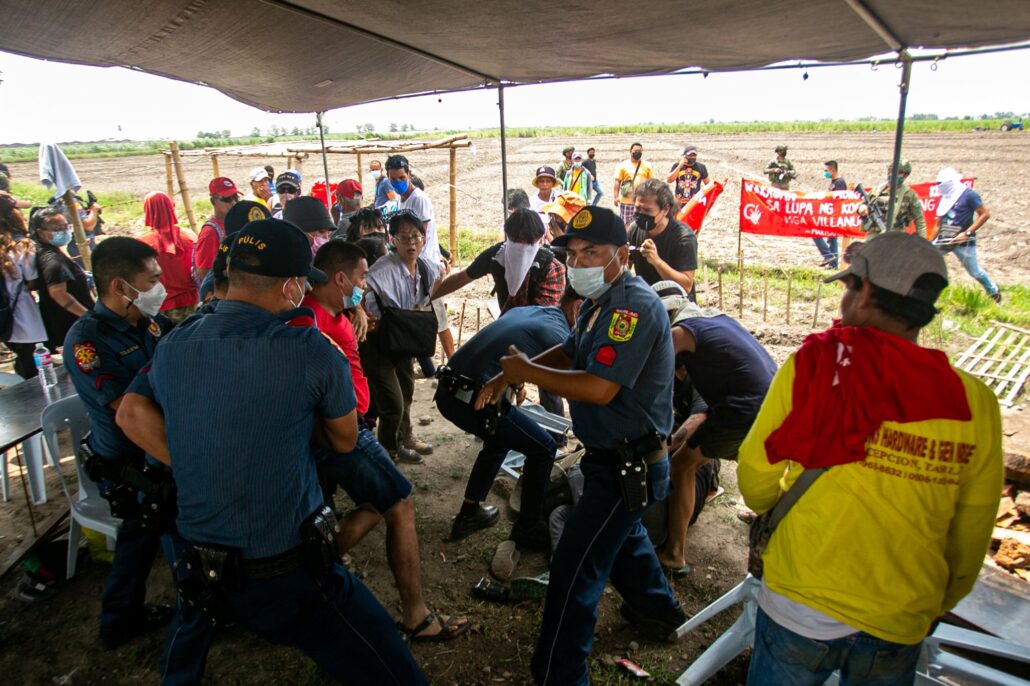Advocates welcome report of peace talks resumption; warn of ‘fake amnesty and surrender’
A group of peace advocates welcomed reports that the Ferdinand Marcos Jr. government is planning to revive its negotiations with the National Democratic Front of the Philippines (NDFP).
The Citizen’s Alliance for Just Peace (CAJP) said the Office of the Presidential Adviser on Peace, Reconciliation and Unity (OPAPRU) announced that a presidential proclamation related to the “political settlement” of the five-decade long civil war in the country is a “productive engagement.”
The CAJP added that the reported proclamation is said to be about “granting amnesty to the rebel fighters,” a long-standing tactic by the Government of the Republic of the Philippines (GRP) that has been repeatedly and officially rejected by the NPA, the Communist Party of the Philippines (CPP) and the New People’s Army (NPA).
“Whatever the real score is, we hope that the government will rethink its bloody all-out war strategy against the CPP/NPA/NDFP that was resumed when former President Rodrigo Duterte terminated the GRP-NDFP peace negotiations in November 2017,” the advocates said.
Earlier, Marcos unveiled his administration’s 2023 – 2028 National Security Policy (NSP) peace advocates said is essentially a reiteration of the government’s long-standing “whole-of-nation” approach.
“The government of Pres. Marcos Jr. appears confident that the death of NDFP Chief Political Consultant Prof. Jose Ma. Sison from natural causes and the killings and arrests of several top leaders of the CPP/NPA/NDFP have greatly weakened it,” the alliance said.
They pointed out that Marcos is the only post-EDSA president who did not engage in peace negotiations with the NDFP at the start of his term.
“He continued his predecessor’s ‘whole-of- nation approach and the National Task Force to End Local Communist Armed Conflict (NTF- ELCAC)…notorious for its wanton red tagging of government critics, social activists and civil society organizations (CSOs) and the human rights violations that come with it,” the CAJP said.
The group also echoed human rights organizations reports the Marcos administration continues to intensify use of laws such as the Anti-terrorism Act (ATA) and the Anti- Terrorist Financing Act (ATFA) against critics and political dissenters.
“Unfortunately, this ‘whole-of-nation approach’ and the NTF-ELCAC have greatly contributed to the shrinking of civic space in the country. The recent case of environmental activists Jonila Castro and Jhed Tamano starkly illustrates how those opposing government projects, like the reclamation of Manila Bay, are illegally and forcibly taken by state security forces and later presented as NPA ‘surrenderees’,” the CAJP said.
CAJP’ statement, issued last Sunday, was signed by Archbishop Emeritus Antonio J. Ledesma, SJ, of the Philippine Ecumenical Peace Platform, former Iglesia Filipina Independiente Obispo Maximo Rhee Timbang of the Pilgrims for Peace, and Karen Tanada of Waging Peace.
“As the biggest and broadest network of peace advocates in the country, the (CAJP) strongly believes that resuming the formal GRP-NDFP peace negotiations will be a productive engagement,” the alliance added. # (Raymund B. Villanueva)




